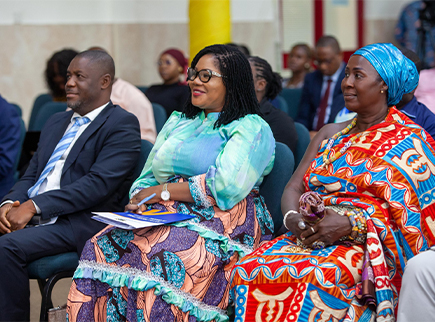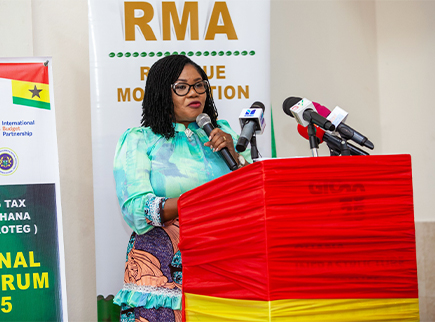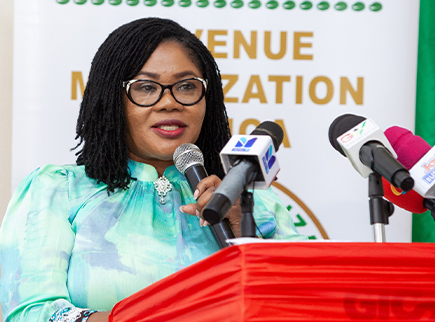Dr Agnes Naa Momo Lartey, the Minister of Gender, Children and Social Protection says while reforms of raising the tax-free thresholds are compelling in principle, the practice must be weighed carefully against what the State can sustained.
She said this should not mean that the concerns raised in a recent study on Ghana’s Personal Income Tax-Free Threshold about fairness, inclusive, and gender equity in the Ghanaian tax system be dismissed.
“On the contrary, the study calls for measured face responses – what can be adjusted in the short-term to ease the burden on vulnerable groups, while ensuring public finance remains stable enough to support essential services,” she stated.
Dr Lartey, who is also the Member of Parliament for Ledzokuku Constituency in Accra made the remark in an address at the National Tax Forum 2025 on Wednesday in Accra on the theme: “Tax Policies for Social Protection.”

It was organised by the Revenue Mobilisation Africa (RMA), which is spearheading an initiative of Promoting Tax Equity in Ghana Project (PROTEG).
The Minister said, “We must be honest to ourselves, government faces fiscal challenges, as school feeding and the Livelihood Empowerment Against Poverty (LEAP) are heavily spending areas when it comes to social protection.
“Yet revenue remain constraint and debt servicing obligations consume a significant share of the budget.”
Dr Lartey said despite the challenges, the government led by President John Dramani Mahama, had shown that even in tough times, investment could be made to improve lives.
“This year the government increase the allocation of the LEAP programme to 953 million cedis from 720 million cedis in 2024, and this to expand the coverage from 350,580 to 400,000 vulnerable household beneficiaries nationwide,” she said.
She stated that payments were also adjusted upwards to reflect inflation, adding that, “What do these numbers mean in real life; a grandmother who is taking care of three children can now put food on the table and keep her grandchildren in school.”
“The women headed households across the country are slightly better cushioned against the rising living cost. This is a clear demonstration that even in challenging times, government remains committed to protecting the most vulnerable,” the Minister conclude ed.
Mrs Elsie Appau-Klu, Technical Advisor to the Commissioner General of the Ghana Revenue Authority in a speech called on Ghanaian citizens and residents to consider the payment of taxes as an obligation for the fulfilment of national development.
She said by so doing they would have the moral courage to call for accountability of the usage of the taxes, adding that their little contributions would significantly help in the provision of educational facilities, health, and road infrastructure.
Manye Naki Azangma, Queen Mother of Dodowa and the Chairperson of the occasion, said Ghanaians took pride in their rich history, diverse cultures, and as resilient people.

“However, our tax system often perpetuates inequality, hindering collective progress,” she stated.
She said tax equity ensured that everyone contributed their fair share to the national coffers, and it was about creating a system where the wealthy and large corporations do not exploit loopholes, while the vulnerable and small businesses bear an unfair burden.
Manye Azangma said, “In Ghana, we have a significant gap between the rich and the poor. Our tax system should bridge this gap, not widen it. We need a more progressive tax system, where those who have more contribute more.”
She said for that matter government needed to simplify the tax laws and regulations, making it easier for small businesses and individuals to comply.
“Secondly, we need to close tax loopholes and eliminate exemptions that benefit only a few, while transparency and accountability in tax collection and utilization must be increased.
She added, “We need to educate and engage citizens on tax equity, promoting a culture of tax compliance and social responsibility.”
“Let us work together to build a fairer tax system, where everyone contributes their fair share. A system that promotes economic growth, reduces inequality, and enhances the well-being of all Ghanaians,” the Queen Mother urged.

